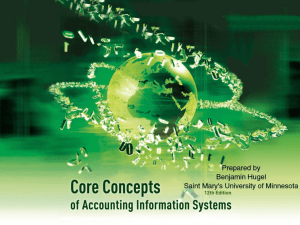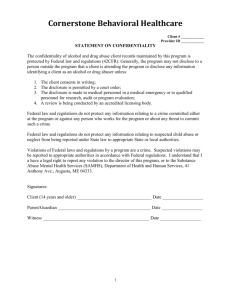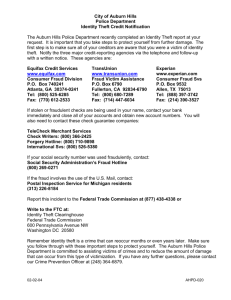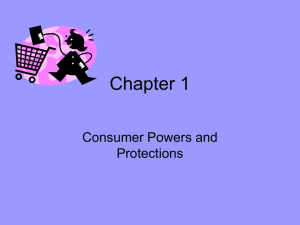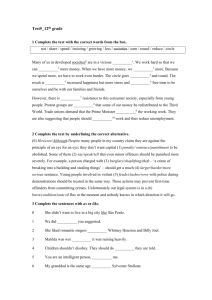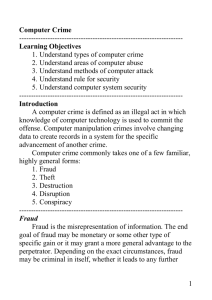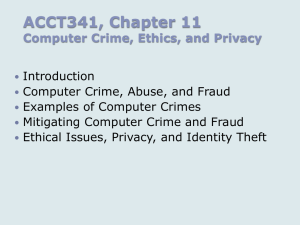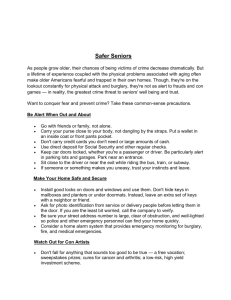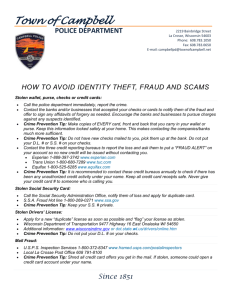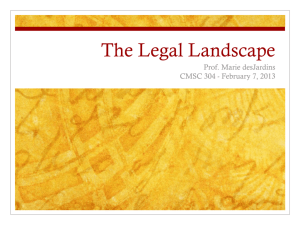Liv2 - Social Issues Involving Computers
advertisement
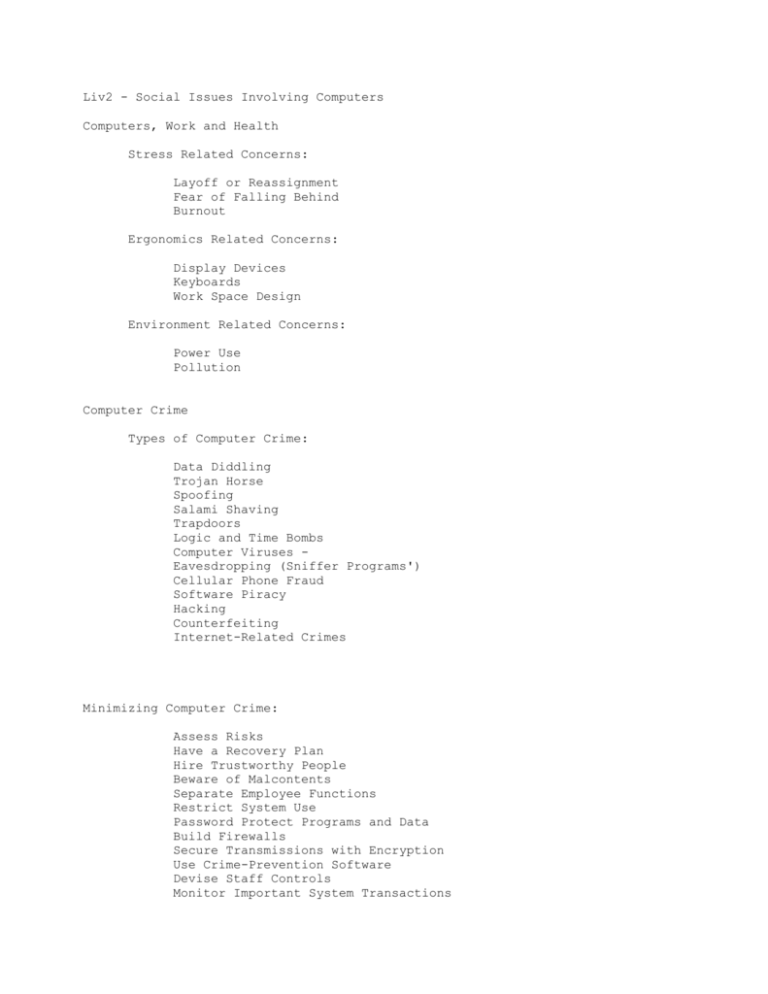
Liv2 - Social Issues Involving Computers Computers, Work and Health Stress Related Concerns: Layoff or Reassignment Fear of Falling Behind Burnout Ergonomics Related Concerns: Display Devices Keyboards Work Space Design Environment Related Concerns: Power Use Pollution Computer Crime Types of Computer Crime: Data Diddling Trojan Horse Spoofing Salami Shaving Trapdoors Logic and Time Bombs Computer Viruses Eavesdropping (Sniffer Programs') Cellular Phone Fraud Software Piracy Hacking Counterfeiting Internet-Related Crimes Minimizing Computer Crime: Assess Risks Have a Recovery Plan Hire Trustworthy People Beware of Malcontents Separate Employee Functions Restrict System Use Password Protect Programs and Data Build Firewalls Secure Transmissions with Encryption Use Crime-Prevention Software Devise Staff Controls Monitor Important System Transactions Conduct Regular Audits Educate Employees Crime Legislation: Computer Fraud and Abuse Act of 1984 Computer Fraud and Abuse Act of 1986 Computer Abuse Amendments Act (1994) National Information Infrastructure Protection Act (1996) No Electronic Theft (NET) Act (1998) Identify Theft and Assumption Deterrence Act of 1998 USA Patriot Act (USAPA) (2001) Sarbanes-Oxley Act (2002) Homeland Security Act (2002) Health Insurance Portability and Accountability Act (HIPAA) (2003) PROTECT Act (2003) Fair and Accurate Credit Transactions Act (FACTA) (2003) Makes it a crime to break into computers owned by the federal government. Amends the 1984 law to include federally regulated financial institutions. Amends the Computer Fraud and Abuse Act of 1984 to include viruses and other harmful code. Amends the Computer Fraud and Abuse Act of 1984 to punish information theft crossing state lines and crack down on network trespassing. Expands computer piracy laws to include distribution of copyrighted materials over the Internet. Makes it a federal crime to knowingly use someone else’s means of identification, such as name, Social Security Number, or credit card, to commit any unlawful activity. Grants federal authorities expanded surveillance and intelligence gathering powers, such as broadening the ability of federal agents to obtain the real identity of Internet users, intercept e-mail and other types of Internet communications, follow online activity of suspects, expand their wiretapping authority, and more. Requires archiving a variety of electronic records and protecting the integrity of corporate financial data. Includes provisions to combat cyberterrorism, including protecting ISP’s against lawsuits from customers for revealing private information to law enforcement agencies. Includes a Security Rule that sets minimum security standards to protect health information stored electronically. Includes provisions to prohibit virtual child pornography. Amends the Fair Credit Reporting Act (FCRA) to require, among other things, that the three nationwide Identity (2004) Theft Penalty Enhancement Act Computers and Privacy Privacy and Electronic Mail Privacy and Marketing Databases Caller Identification Privacy Legislation Ethical Issues Regarding Computers consumer reporting agencies (Equifax, Experian, and TransUnion) provide to consumers, upon request, a free copy of their credit report once every 12 months. Adds extra years to prison sentences for criminals who use identity theft (including the use of stolen credit card numbers) to commit other crimes, including credit card fraud and terrorism.
